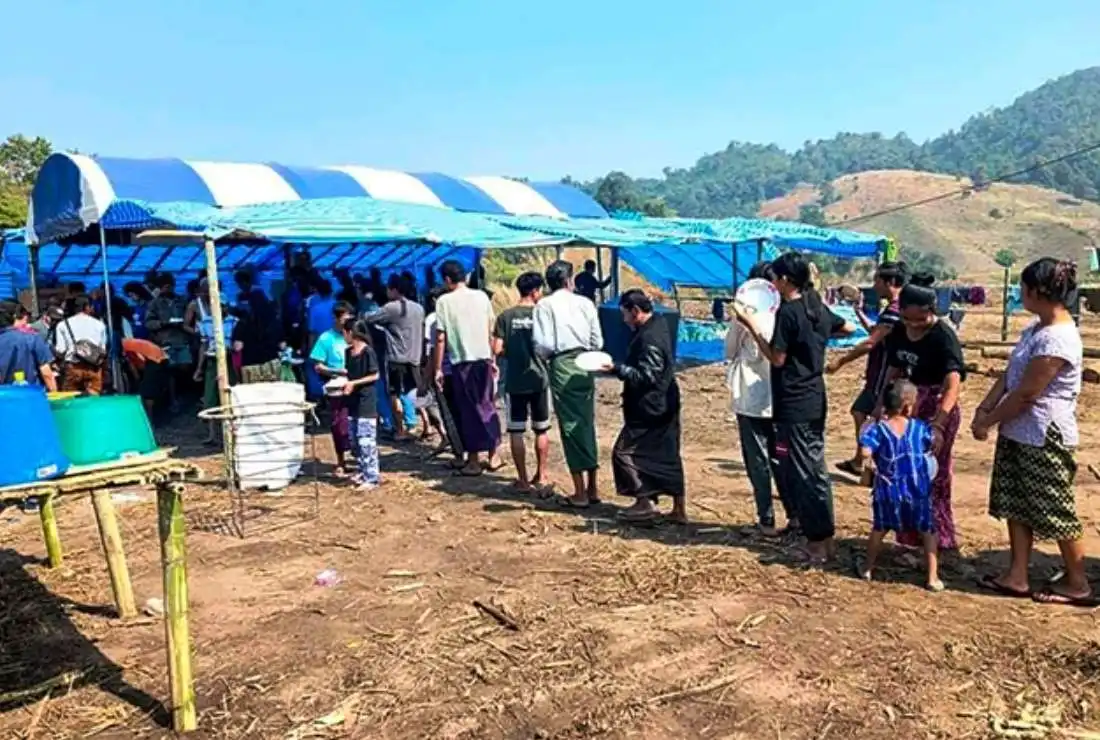An escalating clash between Myanmar’s military and ethnic groups seeking autonomy is now “the largest in scale and most extensive geographically since the 2021 coup,” according to the United Nations Office for the Coordination of Humanitarian Affairs.
More than 286,000 people have fled their homes since an alliance of ethnic armies launched an offensive in northern Shan State in late October, the UN agency said in a report. The fighting has since spread to other regions, killing 187 civilians and injuring 246 others, it said.
“Armed clashes have expanded into more areas, including densely populated urban centers, posing a heightened risk to the safety and security of civilian populations across the country,” the agency said.
The clashes, some near the border with China, had prompted calls from Beijing for a cease-fire and illustrate the challenges that Myanmar’s junta faces in controlling the country nearly three years after a coup. The acting leader of Myanmar’s government-in-exile, Duwa Lashi La said in September that resistance forces were in control of about 60 percent of the Southeast Asian nation’s territory and poised to threaten the junta in key strongholds.
Key transport routes in townships where fightings rage have been blocked by the military and rebel groups, trapping hundreds of people, the UN said. With the closure of some roads, waterways, and airports amid continued interruption of telecommunication services, movement of people and essential goods was severely restricted, it said.
Resistance groups said they have seized many junta bases and some towns near the border with China. The Ta’ang National Liberation Army recently accused the military of using a “toxic gas during an attack near a town in northern Shan State, an accusation denied by the state media.”
The violence is intensifying as the Myanmar military led by Min Aung Hlaing — facing a weak economy and growing signs of dissent within his regime — struggles to keep up with a multi-front conflict from armed ethnic groups.
“We believe this is a first essential step on a path to more stable, well-informed, and effective governance,” he said.




